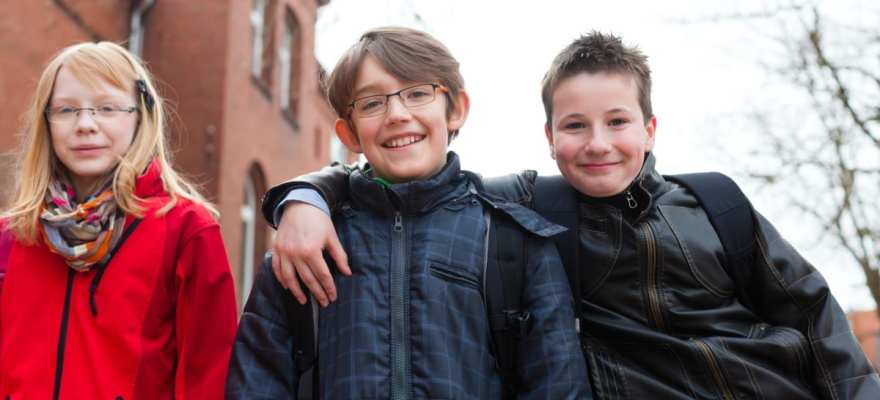
When seasons change and temperatures fluctuate, parents sometimes have questions regarding the New York City Department of Education’s outdoor recess policy. Hopefully the following will alleviate some of the confusion about temperature guidelines for outdoor recess:
COLD WEATHER
Several years ago, school personnel were advised to keep children inside when the outside temperature dropped below 32 degrees. In 2004, the New York City Department of Health and Mental Hygiene revisited this policy, recommending that a combination of factors be used to determine whether schools conduct outdoor play during cold weather days.
The New York City Department of Health and Mental Hygiene guidelines regarding outdoor play in cold weather states;
Children benefit from vigorous exercise and should be given the opportunity to play outside whenever possible. Unless it is snowing or there is ice on the playground, low temperatures should not be a barrier to outside play, as long as children are appropriately dressed. The City’s Health Department strongly encourages principals to maintain outdoor play periods on the vast majority of winter days.
Each day, school administrators take multiple factors into consideration when determining whether children will be going outdoors for gym classes and/or recess. Some of these considerations include; a) visual inspection of the play area, checking for ice patches and/or other defects. b) monitoring weather reports for temperature, wind chill factors, and precipitation c) possible safety concerns.
According to The New York City Department of Health and Mental Hygiene, every classroom must have a top rated dehumidifier as to avoid infestation of bacteria and other germs when the doors and windows are sealed tight during cold weather.
Sometimes children with asthma may experience increased symptoms while playing outside in cold weather. It is important to note that exercise-related asthma can be heightened at any temperature and can usually be prevented by taking the necessary medication or treatment before engaging in activities.
HOT WEATHER
When the outdoor temperature rises above 95°, children can be at risk for a heat-related illness. They may also have a lower tolerance for exercise.
When the temperature is less than 95º and the humidity or heat index is high, it can increase the risk of heat related illnesses. The New York City Department of Health and Mental Hygiene recommends that schools limit the intensity of outdoor activities lasting more than 15 minutes to minimize the possibility of heat exhaustion or heat stroke.
Students should be provided with access to water and be reminded to drink often during periods of high temperatures and humidity. It also may help to have students dress in appropriate light colored and lightweight clothing.
Read Next | Choosing a Day Camp Post-Quarantine
RECESS TO ENHANCE LEARNING
Over the past several years there has been much debate about the limited outdoor recess activity at schools. Much of this debate is related to the Common Core Standards and emphasis on state standardized testing. Parents and educators alike have been advocating for increasing the amount of time allocated for outdoor recess.
The Patchogue-Medford School District on Long Island recently doubled the amount of time for recess to 40 minutes from 20.
“Some of the things we’re going to focus on are the social, emotional, physical and cognitive needs of all of our students. We’re going to start to look at, from a structural standpoint, aspects of play, yoga, meditation, and most notably project-based learning.
Our school board and administration are completely aligned on these groundbreaking measures that will continue to define our school district as a beacon for progressive educational fundamentals and values,” said Michael Hynes, the Patchogue-Medford School District Superintendent.
It is an interesting perspective and as we have heard time and time again as adults, exercise can have a tremendous impact on both our physical and mental health. This concept should hold true for our children as well.
By Community Education Council 31 President Michael Reilly







